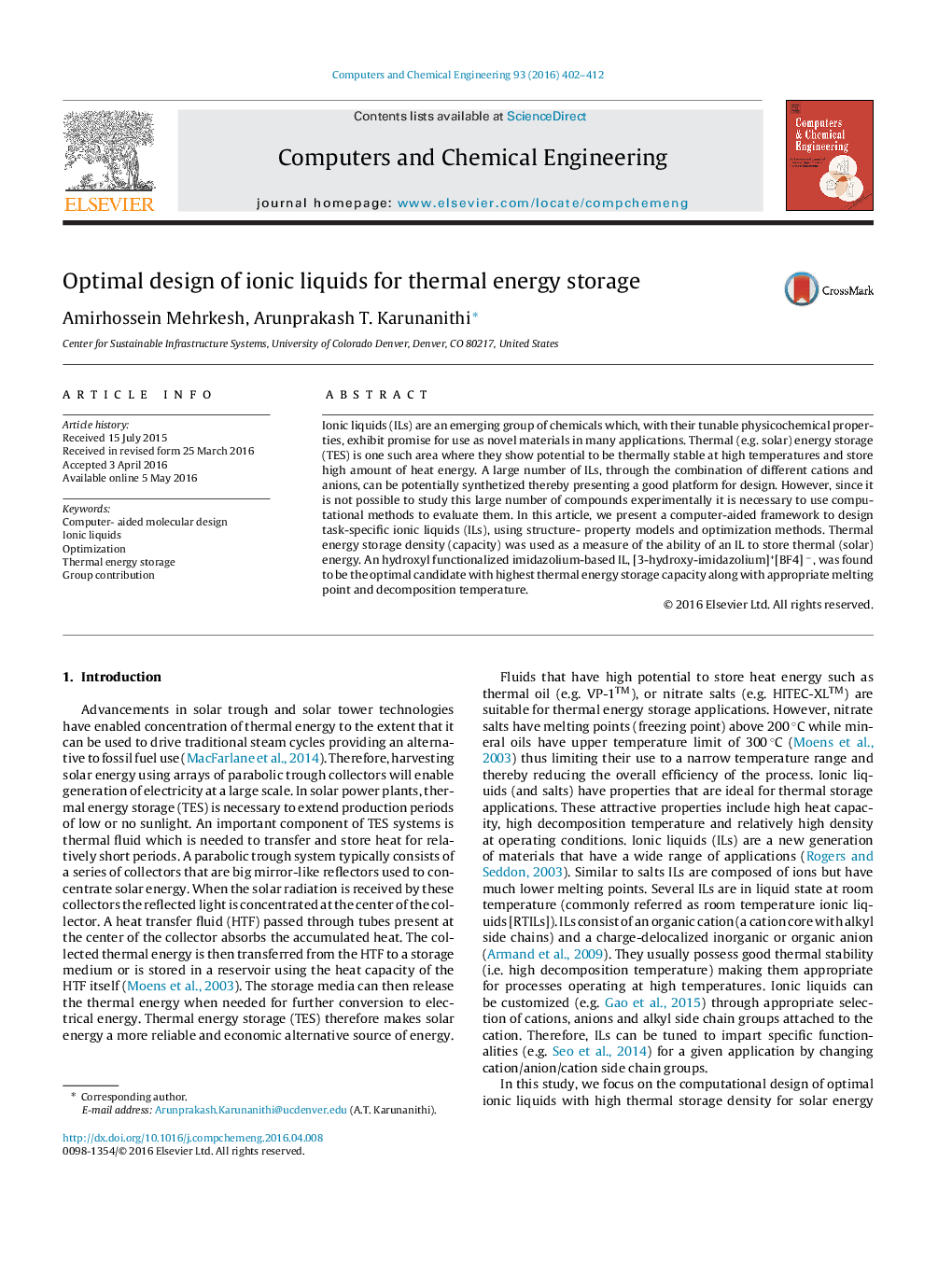| کد مقاله | کد نشریه | سال انتشار | مقاله انگلیسی | نسخه تمام متن |
|---|---|---|---|---|
| 172005 | 458512 | 2016 | 11 صفحه PDF | دانلود رایگان |
• Computer-aided ionic liquid design methodology.
• Ionic liquids for solar thermal energy storage.
• Optimal heat capacity, density, decomposition temperature, and melting point.
• Hydroxyl functionalized optimal ionic liquid.
Ionic liquids (ILs) are an emerging group of chemicals which, with their tunable physicochemical properties, exhibit promise for use as novel materials in many applications. Thermal (e.g. solar) energy storage (TES) is one such area where they show potential to be thermally stable at high temperatures and store high amount of heat energy. A large number of ILs, through the combination of different cations and anions, can be potentially synthetized thereby presenting a good platform for design. However, since it is not possible to study this large number of compounds experimentally it is necessary to use computational methods to evaluate them. In this article, we present a computer-aided framework to design task-specific ionic liquids (ILs), using structure- property models and optimization methods. Thermal energy storage density (capacity) was used as a measure of the ability of an IL to store thermal (solar) energy. An hydroxyl functionalized imidazolium-based IL, [3-hydroxy-imidazolium]+[BF4] −, was found to be the optimal candidate with highest thermal energy storage capacity along with appropriate melting point and decomposition temperature.
Journal: Computers & Chemical Engineering - Volume 93, 4 October 2016, Pages 402–412
